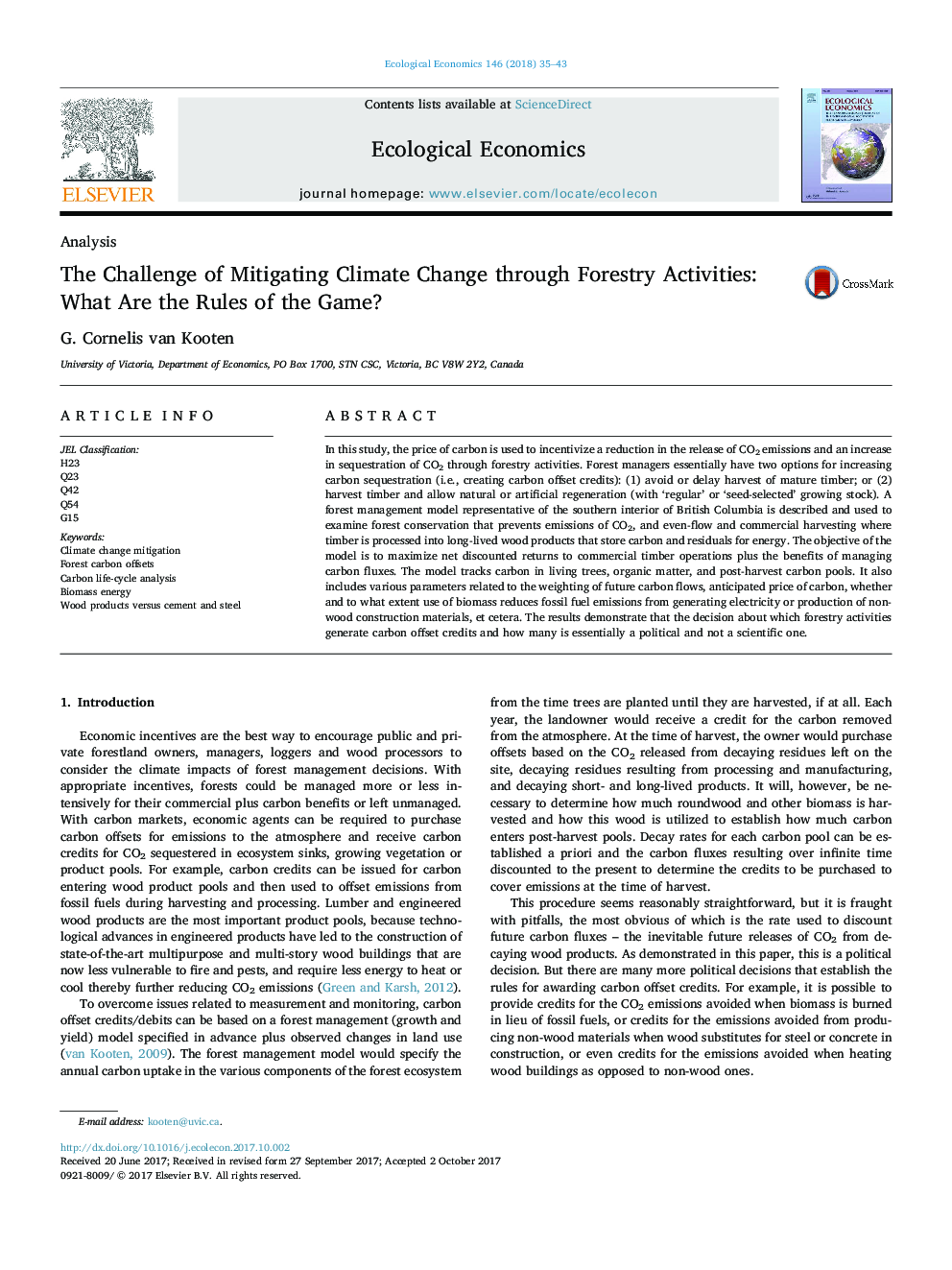| کد مقاله | کد نشریه | سال انتشار | مقاله انگلیسی | نسخه تمام متن |
|---|---|---|---|---|
| 5048488 | 1476333 | 2018 | 9 صفحه PDF | دانلود رایگان |
In this study, the price of carbon is used to incentivize a reduction in the release of CO2 emissions and an increase in sequestration of CO2 through forestry activities. Forest managers essentially have two options for increasing carbon sequestration (i.e., creating carbon offset credits): (1) avoid or delay harvest of mature timber; or (2) harvest timber and allow natural or artificial regeneration (with 'regular' or 'seed-selected' growing stock). A forest management model representative of the southern interior of British Columbia is described and used to examine forest conservation that prevents emissions of CO2, and even-flow and commercial harvesting where timber is processed into long-lived wood products that store carbon and residuals for energy. The objective of the model is to maximize net discounted returns to commercial timber operations plus the benefits of managing carbon fluxes. The model tracks carbon in living trees, organic matter, and post-harvest carbon pools. It also includes various parameters related to the weighting of future carbon flows, anticipated price of carbon, whether and to what extent use of biomass reduces fossil fuel emissions from generating electricity or production of non-wood construction materials, et cetera. The results demonstrate that the decision about which forestry activities generate carbon offset credits and how many is essentially a political and not a scientific one.
Journal: Ecological Economics - Volume 146, April 2018, Pages 35-43
